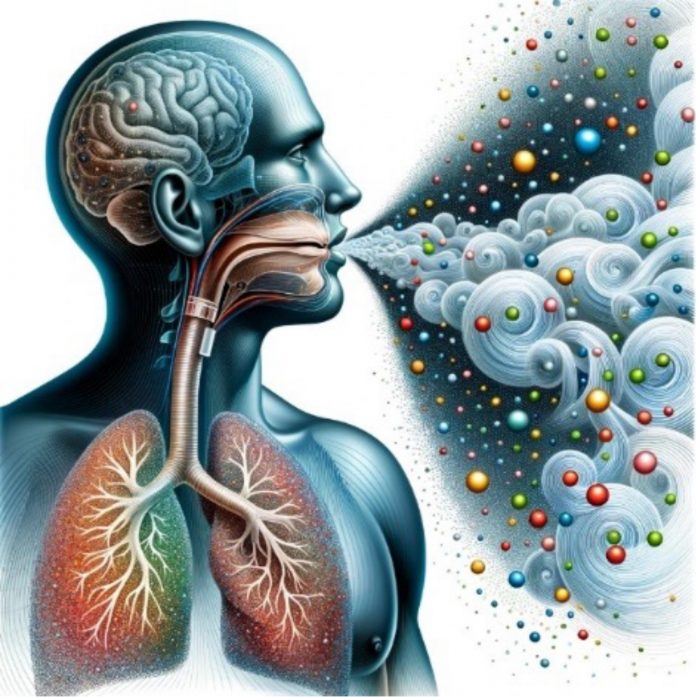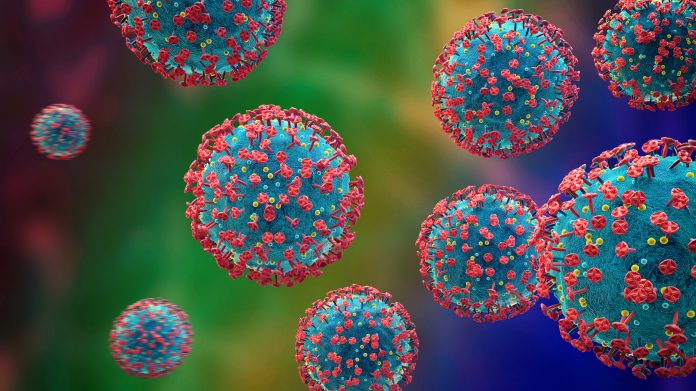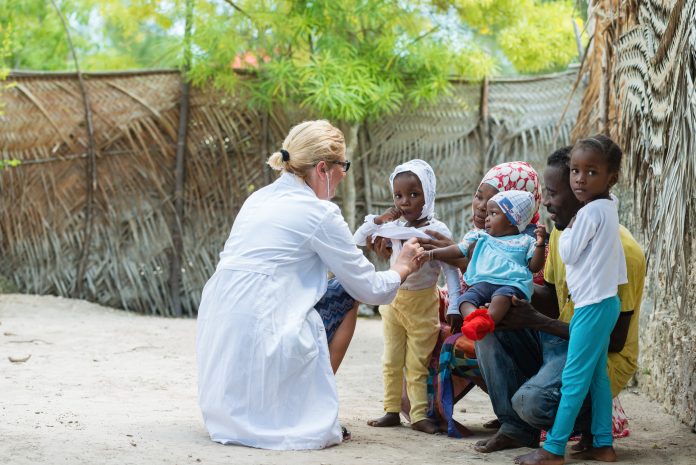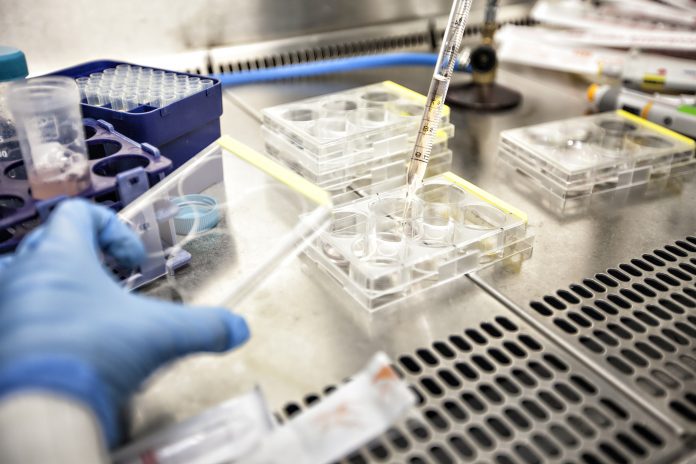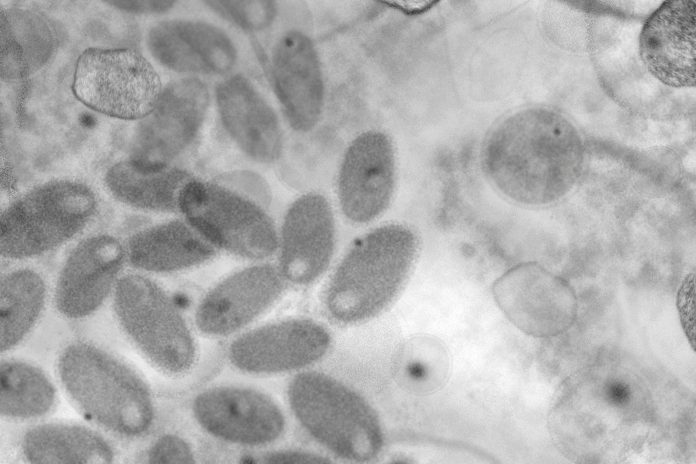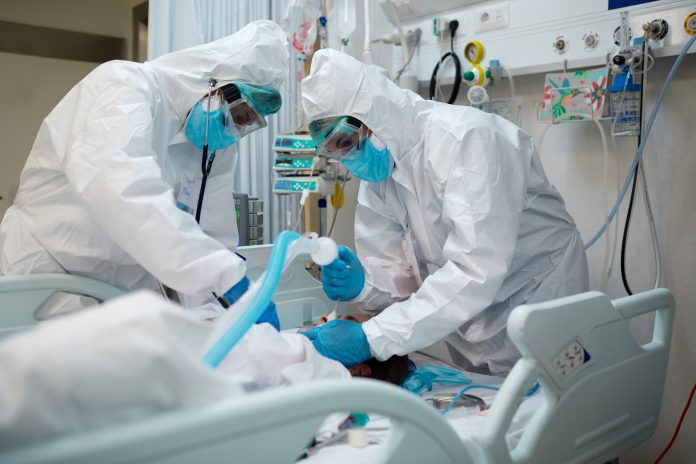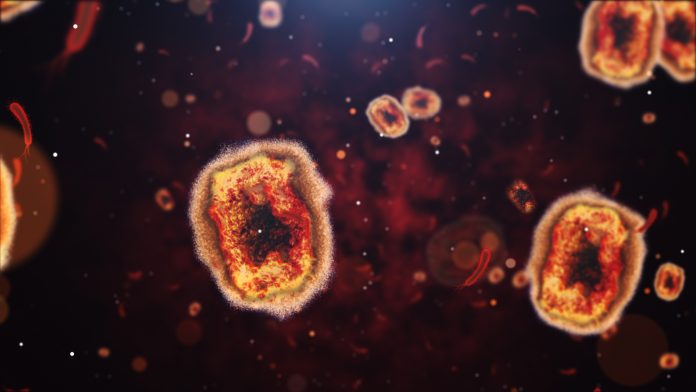Open Access Government produces compelling and informative news, publications, eBooks, and academic research articles for the public and private sector looking at health, diseases & conditions, workplace, research & innovation, digital transformation, government policy, environment, agriculture, energy, transport and more.
Home Search
infectious diseases - search results
If you're not happy with the results, please do another search
Jason Kindrachuk PhD – University of Manitoba
Dr. Kindrachuk is an Associate Professor and Canada Research Chair in emerging and re-emerging viruses in the Departments of Medical Microbiology & Infectious Diseases and Internal Medicine, University of Manitoba
His research focuses on the circulation, transmission and pathogenesis of emerging zoonotic viruses that pose the greatest threat to global...
Revolutionising disease detection: The emergence of non-invasive VOC breathomics
Breathomics marks a revolutionary approach to disease detection by analyzing the chemical composition of exhaled breath.
Decoding pandemic precision: From SARS-CoV-2 to influenza vaccination strategies
The need for public health officials to be able to model the spread of an infectious disease has never been more apparent than in the early days of the SARS-CoV-2 pandemic.
How climate change is a danger to our health
The World Health Organization (WHO) and the global health community demand that climate change's impact on health take centre stage at COP28.
Viewing climate change and its impact through a One Health lens
Ellie Parravani, External Affairs Advisor at international animal charity Brooke, explains why a ‘One Health’ approach to climate change is vital to protect people, animals, and the planet.
Sepsis survivors: Improving long-term health outcomes post sepsis
Michael Wong and Amy Campbell from the Physician-Patient Alliance for Health & Safety reflect on the fourth World Sepsis Congress discussion, which focused on ways to improve long-term health outcomes post sepsis.
Climate change threatens beach tourism
The Climate Service Center Germany (GERICS) and the Blue Flag Programme cooperate on the beach and coastal tourism adaptation to climate change.
The European Union’s Global Health program
The EDCTP partnership, a cornerstone of the EU's health research initiative that funds clinical trials in Africa, needs more certainty about its future as it marks its 20th anniversary.
Antibiotic resistance threatens young lives worldwide
Antibiotics used to treat common infections in infants and children are becoming increasingly ineffective worldwide.
Katrin Gaardbo Kuhn, MSc MBBS PhD – University of Oklahoma Health Sciences Center, Hudson...
Katrin Kuhn has more than 20 years’ experience in infectious disease epidemiology
Dr. Kuhn was one of the original founders of the Centre on Climate Change and Planetary Health at London School of Hygiene & Tropical Medicine where she completed her postgraduate degrees and worked for several years.
Following this, she...
NIH grants supports HIV care and climate change research
Researchers aim to uncover how extreme weather affects long-term HIV care outcomes and implications for addressing climate change impacts and other chronic health conditions.
Leveraging genomic data for effective pandemic preparedness and response
Decoding pathogens’ genetic material is fast becoming an invaluable tool to support pandemic preparedness and responses to global public health threats, Anona Bamford tells us more
The role of microbial diversity in microbial electrosynthesis
Bacteria are often painted as the enemy of humanity. Before the discovery of antibiotics, a wound getting infected was frequently a death sentence.
Opportunities and challenges in blood collection and transfusion medicine
Kate Fry, CEO of America’s Blood Centers, discusses the essential role of blood products and transfusion medicine in the U.S. and the efforts to ensure blood’s safety and availability.
A new era of pathogen surveillance using genomic sequencing
We spoke to Dr Joanne Hackett, Former Chief Commercial Officer of Genomics England and Regional Board Member of Movement Health 2030, about how genomic sequencing supports preparedness and response to public health threats
Genomic sequencing is a method scientists use to decipher the genetic material found in organisms or viruses....
How can we stop the pandemic risk of wildlife trafficking?
In a study, researchers look at how global supply chains are being hijacked by criminals, and present countermeasures to illegal wildlife trafficking.
Towards One Health Intelligence surveillance systems
The increase in global diseases and other health threats in recent decades has necessitated the importance of strengthening our surveillance systems towards early detection and monitoring of drivers.
Applying data science advances in disease surveillance and control
Dr. David S. Ebert from the University of Oklahoma’s Data Institute for Societal Challenges and Dr. Aaron Wendelboe from the University of Oklahoma Health Sciences Center outline how a cohesive, multidisciplinary, and multi-tiered approach can support a more predictive model in disease surveillance and control.
Living with HIV: The prevalent pandemic which is no longer considered a pandemic
Dr Avinash Hari Narayanan (MBChB), Clinical Lead at London Medical Laboratory, explains that we need stronger efforts worldwide to end HIV transmission and improve the lives of those living with the disease.
Lack of access to treatment for opioid dependence is concerning
Monica Racoviță, Senior Researcher at The Health Policy Partnership, argues that opioid dependence is a pressing issue, yet treatment for it is still out of reach for many.


